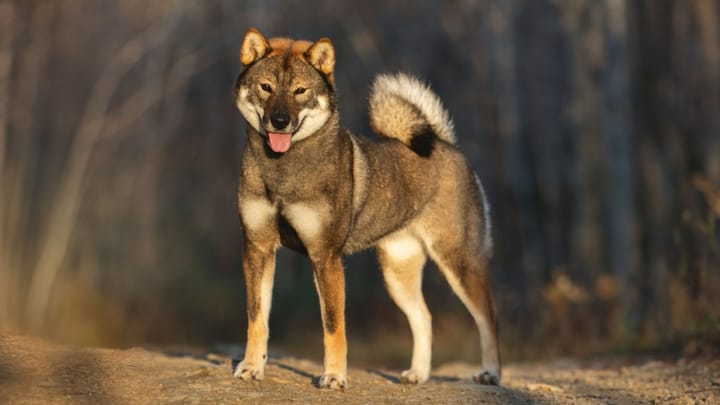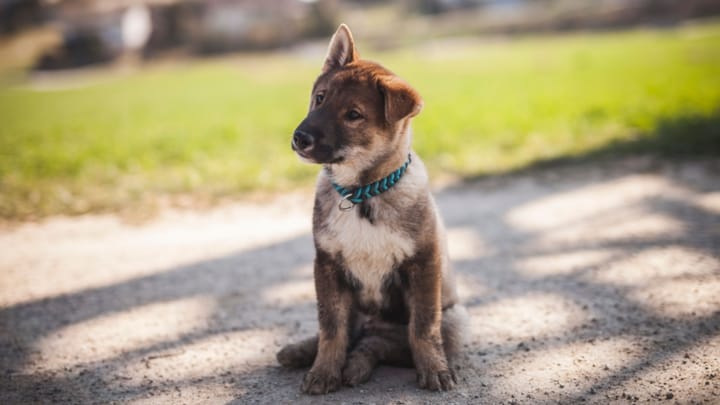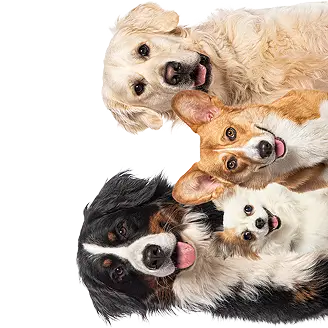Shikoku
Other name: Kochi-ken


The Shikoku originates from Japan, where it was used to track wild boar and other wildlife. While this breed boasts incredible stamina and an impressive work ethic, it’s also well-loved for its loyalty and affection towards its master. This breed requires a confident owner or family who leads an extremely (and we really mean extremely) active and outdoor lifestyle.
|
Life expectancy |
The Shikoku has a life expectancy of between 13 and 15 years |
|
Temperament |
|
|
Size |
Medium
|
|
Adult size |
Female
Between 18 and 20 in
Male
Between 19 and 22 in
|
|
Adult weight |
Female
Between 33 and 44 lb
Male
Between 33 and 44 lb
|
|
Coat colour
Black, grey, white, red or tan or mixed. |
Black Red Sand |
|
Type of coat
Short to mid length, double, straight, harsh, dense. |
Short |
|
Eye colour
Dark brown. |
Brown
|
The Shikoku is a real tough-cookie, capable of tracking and hunting deer and boar several times its size.
More details about the Shikoku
Shikoku: Origins and history
The Shikoku originated in Japan on the island of Shikoku and is still considered a national treasure. It was bred to be a hardy breed, capable of hunting large animals in isolated and mountainous regions on rough terrain. Nowadays, the breed is extremely rare outside its native Japan.
Physical characteristics of the Shikoku
The Shikoku is a medium-sized dog that is similar in appearance to the Husky. The broad, wedge-like head features slanted almond-shaped eyes, a black nose, black lips, high-set triangular ears and a long, tapered muzzle. The body is compact yet powerful and muscular, with moderately long, strong legs. The Shikoku also boasts a spitz-like curled tail.
FCI classification of the Shikoku
-
Group 5 - Spitz and primitive types
-
Section 5 : Asian Spitz and related breeds
Shikoku: Characteristics
Shikoku: Behaviour
Training a Shikoku
The Shikoku is smart and capable of learning quickly. However, sometimes stubbornness can get in the way of training sessions. Using plenty of positive reinforcement and rewards, as well as being consistent and patient, is the best way forward.
Shikoku: Lifestyle
Breed compatibility Shikoku
Shikoku: Purchase price
We do not have enough data to set an average purchase price. Looking after a dog of this size typically costs between £60 to £100 a month, including food, medical/insurance, and incidental expenses.
Shikoku: Shedding
Average
Shikokus shed heavily twice a year.
Shikoku: Grooming
The Shikoku is easy enough to groom, requiring a weekly brush to keep the coat glossy and in good condition. During shedding season, brushing might need to be more frequent - a deshedder will come in handy. Otherwise, normal care is required - trim the nails when necessary, check and clean the ears every couple of weeks and brush teeth daily.
Shikoku: Health
Overall, this is a healthy and robust breed, though it is prone to developing certain breed-specific health problems. Their life expectancy is 14 years.
This is an agile, robust breed with great endurance.
She can overheat quickly due to the thick, double coat. Shikoku’s are also prone to allergies in hot climates.
This dog is highly tolerant of cold temperatures, boasting a dense, double coat which insulates against harsh weather.
Although not genetically prone to gaining weight, this breed is commonly under exercised in a domestic setting, and is then prone to obesity. If you’re considering this breed, you must have the time to dedicate to daily vigorous exercise.
- Hip dysplasia
- Elbow dysplasia
- Weak heart
- Allergies
- Luxating patella
- Entropion
- Epilepsy




